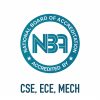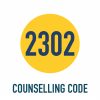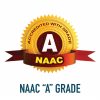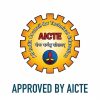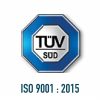Sri Shanmugha Educational Institutions

About the Department
The Department of Information Technology was established in 2021 with the objective of imparting quality education in the field of Information Technology. The department is augmented with qualified faculty with rich teaching experience. The Department has well established lab facilities with advanced software suited to the syllabus prescribed by the University. Faculty and students have been doing research in the areas like IoT, Data Analytics, Full stack Development, Image Processing, Network security, Mobile Ad-hoc Networks etc. The Department is adopting a new innovative teaching methodology to meet PEOs (Programme Educational Objectives). The class rooms are well equipped with all modern electronic audio-visual facilities to cater to the academic needs of students and staff. Our students have undertaken internships in many reputed MNCs.
ACADEMIC PROGRAMME
UG
Establishment Year : 2021
Student Strength : 60
Department Highlights
- Career counselling by Industry Experts.
- Project Based Learning.
|
S.NO |
NAME OF THE FACULTY MEMBER |
DESIGNATION |
|
1 |
Dr. K. Muthukannan |
Professor & Head |
|
2 |
Mr. B. Anandan |
Assistant Professor |
|
3 |
Mrs. K.Poongulaly |
Assistant Professor |
|
4 |
Mrs.S.Arthi |
Assistant Professor |
|
5 |
Mr.S.Balaji |
Assistant Professor |
|
6 |
Dr. R. Kishore |
Assistant Professor |
|
7 |
Mrs.M.Ramya |
Assistant Professor |
|
8 |
Mr. S. Arivazhagan |
Assistant Professor |
|
9 |
Ms.S.Hariprabha |
Assistant Professor |
|
10 |
Mr.N.Prakashrajan |
Assistant Professor |
|
11 |
Mr.P.Silambarasu |
Assistant Professor |
|
12 |
Mrs.S.Saranya |
Assistant Professor |
Dr. K. MUTHUKANNAN
| Faculty Details | 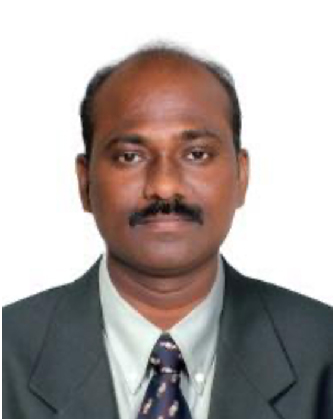 |
|
| Name of Faculty | Dr. K. Muthukannan, M.E., Ph.D., | |
| Designation | Professor & Head | |
| Contact No | 9944179701 | |
| hod.it@shanmugha.edu.in | ||
| Qualification | M.E., Ph.D., | |
| Specialization | Image Processing and Pattern Recognition | |
| Experience (in years) | ||
| Teaching | 16.10 Years | |
| Industry | Nil | |
Dr. K. Muthukannan received his B.E.(Electronics and Communication Engineering) in 2005 from Anna University, Chennai. He received M.E.(Computer Science and Engineering) in 2010 from Manonmaniam Sundaranar University, Tirunelveli. He also received Ph.D.(Faculty of Information and Communication Engineering) in 2017 from Anna University, Chennai. He is a recognized supervisor of Anna University, Chennai. He is having more than 16 years of teaching experience. He is having more than 25 publications in International journals and conferences and one patent publication. He also attended more than 25 seminars/hands on training/ workshop and organized more than 10 seminars/workshop and conferences. His research interests include Image processing and Pattern recognition.
Mr. B. ANANDAN
| Faculty Details | 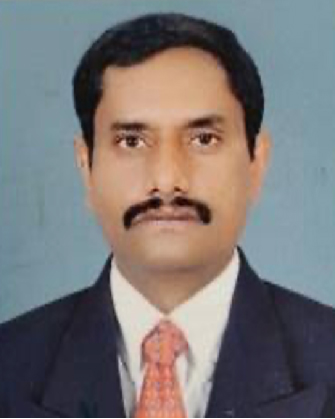 |
|
| Name of Faculty | Mr. B. Anandan, | |
| Designation | Assistant Professor | |
| Contact No | 7358827266 | |
| anandan.b@shanmugha.edu.in | ||
| Qualification | M.E., | |
| Specialization | Software Engineering | |
| Experience (in years) | ||
| Teaching | 20 Years | |
| Industry | Nil | |
Anandan Bellie is an academic professional with a solid educational background and extensive experience in the field of Computer Science Engineering and Data Mining. With a Bachelor’s degree in Computer Science Engineering, followed by a Master’s degree in Software Engineering from Anna University, Anandan has continually doing his expertise in the realm of technology and academia. Over the years, he has accumulated 14 years of valuable teaching experience abroad, coupled with 6 years of substantial tenure in Indian engineering colleges. Anandan’s passion for research led him to delve into data mining, where he has actively engaged in various research activities and in the same field. His keen interest in the latest trends in machine learning and data analytics further demonstrates his commitment to staying with of advancements in the industry. Anandan also received many IIT’s NPTEL course certificate and taken role of HOD and involved in many college accreditation activities.
Mrs. K. POONGULALY
| Faculty Details |  |
|
| Name of Faculty | Mrs.K.Poongulaly | |
| Designation | Assistant Professor | |
| Contact No | 8825877759 | |
| poongulaly@shanmugha.edu.in | ||
| Qualification | M.E., | |
| Specialization | Computer and Communication Engineering | |
| Experience (in years) | ||
| Teaching | 12 Years | |
| Industry | Nil | |
K.POONGULALY received the B.E. (ECE) degree in 2006 at Periyar Maniyammai college of Technology for Women from the Anna University. She completed her Master degree M.E.(Computer and Communication Engineering) in 2013 at MNSK College of Engineering from Anna University. She has 12 years of teaching experience. She is an Assistant Professor from the Department of Information Technology, Sri Shanmugha College of Engineering and Technology, She presented 1 International Conference and 4 National Conference.
Mrs.S.ARTHI
| Faculty Details |  |
|
| Name of Faculty | Mrs.S.Arthi | |
| Designation | Assistant Professor | |
| Contact No | 9443611113 | |
| arthi@sahnmugha.edu.in | ||
| Qualification | M.E., | |
| Specialization | Computer Science and Engineering | |
| Experience (in years) | ||
| Teaching | 11.4 Years | |
| Industry | Nil | |
Mrs.S.Arthi received B.E (Computer Science and Engineering) degree in 2010 at AVINASHILINGAM UNIVERSITY FOR WOMEN. She completed her master degree M.E. (Computer Science and Engineering) in 2012 at VIVEKANANDHA COLLEGE OF ENGINEERING FOR WOMEN from Anna University. His Area of Specialization include Wireless Networks and Cloud Computing.
Mr.S.BALAJI
| Faculty Details | 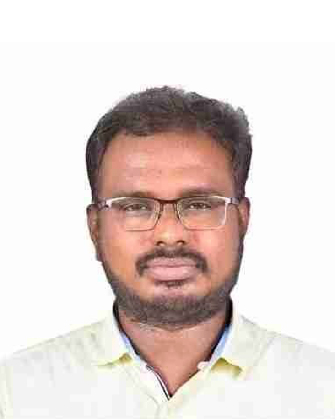 |
|
| Name of Faculty | Mr.S.Balaji | |
| Designation | Assistant Professor | |
| Contact No | 9942577794 | |
| balaji.s@sahnmugha.edu.in | ||
| Qualification | M.Tech., | |
| Specialization | Web Mining, Artificial Intelligence and Machine Learning | |
| Experience (in years) | ||
| Teaching | 10.4 Years | |
| Industry | Nil | |
S.Balaji received his UG B.E (Computer Science and Engineering) degree in 2009 at Sengunthar Engineering College from the Anna University. He completed his master degree M.Tech. (Information Technology) in 2012 at K.S.Rangasamy College of Technology from Anna University. He has 10 years of teaching experience. He has 10 International Journals and attended various workshops and FDP. His research interest is web mining, Social Network Analysis.
Dr. R. KISHORE
| Faculty Details | 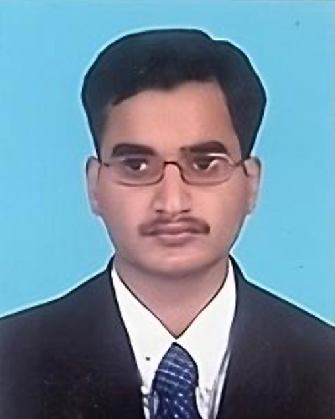 |
|
| Name of Faculty | Dr. R. Kishore, | |
| Designation | Assistant Professor | |
| Contact No | 9952766586 | |
| kishore.r@shanmugha.edu.in | ||
| Qualification | M.E.,Ph.D., | |
| Specialization | Medical Image Processing | |
| Experience (in years) | ||
| Teaching | 8 Years | |
| Industry | 1 Year | |
Dr.R.Kishore, working as an Assistant Professor in Shanmugha College of Engineering and Technology for the IT Department. He studied B.E Electronics and Instrumentation and M.E Computer Science and Engineering from Thiagarajar College of Engineering College, Madurai. Also, he has completed PhD in Medical image processing Stream during the year 2023. He had been worked as a testing engineer in Cognizant Technology Solutions India Private Limited and completed certification in software testing, general insurance and personal insurance after he completed M.E. He is having 8 years teaching experience in private engineering colleges.
Mrs. M. RAMYA
| Faculty Details |  |
|
| Name of Faculty | Mrs. M. Ramya, | |
| Designation | Assistant Professor | |
| Contact No | 8825456416 | |
| ramya.m@shanmugha.edu.in | ||
| Qualification | M.E. | |
| Specialization | Mobile Computing | |
| Experience (in years) | ||
| Teaching | 5.7 Years | |
| Industry | Nil | |
M.RAMYA received the B.Tech.(Information Technology) degree in 2016 at Vivekanandha Institute of Engineering and Technology for Women from the Anna University. She completed her master degree M.E.( Computer Science and Engineering) in 2018 at Vivekanandha College of Technology for Women from Anna University. She has 5 years of teaching experience. She is an Assistant Professor from the Department of Computer Science and Engineering, Sri Shanmugha College of Engineering and Technology and member of ISTE professional societies. She Published 1 Book, 1 National Journal, 6 International Journals .She presented 4 International Conference and 5 National Conference.
Mr. S. ARIVAZHAGAN
| Faculty Details |  |
|
| Name of Faculty | Mr. S. Arivazhagan | |
| Designation | Assistant Professor | |
| Contact No | 8073763060 | |
| arivazhagan.s@shanmugha.edu.in | ||
| Qualification | M.E., | |
| Specialization | Computer and Communication | |
| Experience (in years) | ||
| Teaching | 2 Years | |
| Industry | 10 Years | |
I am S.Arivazhagan With 10 years in the industrial sector, I’ve gained diverse experience in construction, pharma, and electrical fields. My roles have spanned from technical associate to team leader, providing me with invaluable insights into various facets of IT infrastructure management. My expertise lies in IT infrastructure management across multiple levels, encompassing servers, storage, networking, cloud infrastructure, and security auditing. I have had the privilege of leading Greenfield projects for esteemed clients like GSK (UK Project) and Micronclean (UK Project) for a total of 7 years. I am excited to leverage my industry experience and technical acumen to contribute meaningfully to our institution’s journey. I believe that by embracing innovation and adopting a forward-thinking approach, we can propel ourselves towards greater heights of success.
Mrs. S. HARIPRABHA
| Faculty Details | 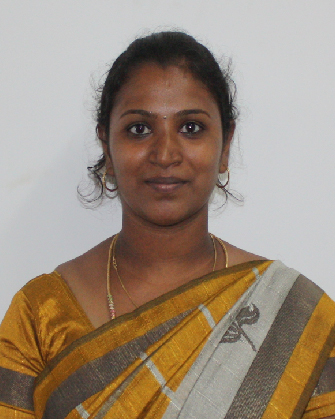 |
|
| Name of Faculty | Ms.S.Hariprabha. | |
| Designation | Assistant Professor | |
| Contact No | 7904068254 | |
| hariprabha.s@shanmugha.edu.in | ||
| Qualification | M.E., | |
| Specialization | Computer Science and Engineering | |
| Experience (in years) | ||
| Teaching | 1.10 Years | |
| Industry | Nil | |
S.Hariprabha received the B.E degree in 2016 at Nandha College of Technology, from the Anna University. She completed her master degree M.E.( Computer Science and Engineering) in 2018 at Nandha College of Technology, from the Anna University. She has 1 years 10 Month of teaching experience. She is an Assistant Professor from the Department of Information Technology, Sri Shanmugha College of Engineering and Technology and member of ISTE professional societies. She Published 1 International Journals .She presented 3 International Conference.
Mr.N.PRAKASHRAJAN
| Faculty Details | 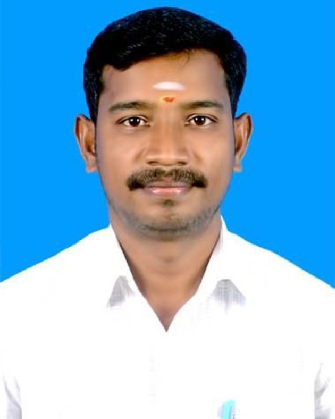 |
|
| Name of Faculty | Mr.N.Prakashrajan | |
| Designation | Assistant Professor | |
| Contact No | 9786873022 | |
| prakashrajan@shanmugha.edu.in | ||
| Qualification | M.Tech., | |
| Specialization | Computer Science and Engineering | |
| Experience (in years) | ||
| Teaching | 2.9 Years | |
| Industry | Nil | |
Mr.N.Prakashrajan received B.E (Computer Science and Engineering) degree in 2010 at E G S PILLAY ENGINEERING COLLEGE affiliated by Anna University Chennai. He completed his master degree M.Tech.( Computer Science and Engineering) in 2014 at Periyar Maniammai University. His Area of Specialization include Mobile Computing and Web Technology.
Mr.P.SILAMBARASU
| Faculty Details |  |
|
| Name of Faculty | Mr.P.Silambarasu | |
| Designation | Assistant Professor | |
| Contact No | 7418742146 | |
| silambarasu@shanmugha.edu.in | ||
| Qualification | M.E., | |
| Specialization | Computer Science and Engineering | |
| Experience (in years) | ||
| Teaching | 1 year | |
| Industry | Nil | |
Mr.P.Silambarasu received B.E (Computer Science and Engineering) degree in 2018 at Coimbatore Institute of Technology, Coimbatore. He completed his master degree M.E.( Computer Science and Engineering) in 2020 at Mahendra Engineering college, Mallasamudram, Namakkal.. His Area of Specialization include Database Management System and Data structure
Mrs. S. SARANYA
| Faculty Details | 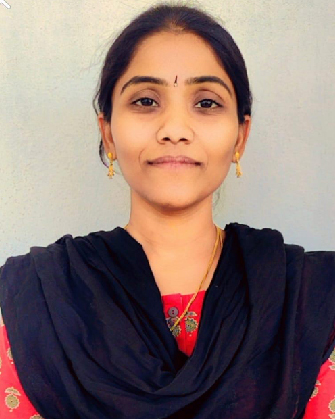 |
|
| Name of Faculty | Mrs.S.Saranya | |
| Designation | Assistant Professor | |
| Contact No | 8754097293 | |
| saranya.cse@shanmugha.edu.in | ||
| Qualification | M.E., | |
| Specialization | Computer Science and Engineering | |
| Experience (in years) | ||
| Teaching | 8 months | |
| Industry | Nil | |
S.SARANYA received the B.E degree in 2010 at Bannari Amman Institute of Technology. She completed her master degree M.E. (Computer Science and Engineering) in 2012 at SSN College of Engineering. She has 10 Month of teaching experience.
Vision
To create a conducive environment for the development of academic and innovative technocrats employable at the global level, socially responsible and professionally competent to sustain the challenges
Mission
M1: To develop competent and quality IT professionals by imparting state-of the art technology learning methodologies.
M2: To promote Industry – Institution relationships among the students to become more employable and better citizens to solve societal issues.
M3: To constantly upgrade the Faculty qualification with cutting edge technology to achieve high status in technical and research areas.
Program Educational Outcomes (PEOs)
PEO 1. To ensure graduates will be proficient and core competent by utilizing the fundamental knowledge of Basic Sciences, Engineering, Mathematics and Information Technology for the applications of various Engineering and Technology disciplines.
PEO 2. To enable graduates to think logically and will have the capacity to understand the social, business, environmental based hardware and software issues by designing optimal solutions through lifelong learning.
PEO 3. To enable graduates to gain employment in organizations and establish themselves as professionals by applying their technical skills to solve real world problems and meet the diversified needs of industry, academia and research.
PROGRAM OUTCOMES (POs)
- Engineering knowledge: Apply the knowledge of mathematics, science, engineering fundamentals, and an engineering specialization to the solution of complex engineering problems.
- Problem analysis: Identify, formulate, review research literature, and analyze complex engineering problems reaching substantiated conclusions using first principles of mathematics, natural sciences, and engineering sciences.
- Design/development of solutions: Design solutions for complex engineering problems and design system components or processes that meet the specified needs with appropriate consideration for the public health and safety, and the cultural, societal, and environmental considerations.
- Conduct investigations of complex problems: Use research-based knowledge and research methods including design of experiments, analysis and interpretation of data, and synthesis of the information to provide valid conclusions.
- Modern tool usage: Create, select, and apply appropriate techniques, resources, and modern engineering and IT tools including prediction and modeling to complex engineering activities with an understanding of the limitations.
- The engineer and society: Apply reasoning informed by the contextual knowledge to assess societal, health, safety, legal and cultural issues and the consequent responsibilities relevant to the professional engineering practice.
- Environment and sustainability: Understand the impact of the professional engineering solutions in societal and environmental contexts, and demonstrate the knowledge of, and need for sustainable development.
- Ethics: Apply ethical principles and commit to professional ethics and responsibilities and norms of the engineering practice.
- Individual and team work: Function effectively as an individual, and as a member or leader in diverse teams, and in multidisciplinary settings.
- Communication: Communicate effectively on complex engineering activities with the engineering community and with society at large, such as, being able to comprehend and write effective reports and design documentation, make effective presentations, and give and receive clear instructions.
- Project management and finance: Demonstrate knowledge and understanding of the engineering and management principles and apply these to one’s own work, as a member and leader in a team, to manage projects and in multidisciplinary environments.
- Life-long learning: Recognize the need for, and have the preparation and ability to engage in independent and life-long learning in the broadest context of technological change.
Program Specific Outcomes (PSOs)
PSO 1. To create, select, and apply appropriate techniques, resources, modern engineering and IT tools including prediction and modelling to complex engineering activities with an understanding of the limitations.
PSO 2. To manage complex IT projects with consideration of the human, financial, ethical and environmental factors and an understanding of risk management processes, and operational and policy implications.
RESEARCH AND CONSULTANCY
Research paper format
2023
| Mr.S.Balaji “Intelligent Personalized Nutrition Guidance System using IoT and Machine Learning Algorithm” 2023 Second International Conference On Smart Technologies for Smart Nation (Smart TechCon) | 979-8-3503-0541-8/23/$31.00 ©2023 IEEE | DOI:.10.1109/SmartTechCon57526.2023.10391336 |
| Dr.K. Muthukannan “Optimizing Water Distribution Pump Scheduling with SVM-Based Machine Learning Using IoT Sensor Data” 2023 Second International Conference On Smart Technologies for Smart Nation (Smart TechCon) | 979-8-3503-0541-8/23/$31.00 ©2023 IEEE | DOI: 10.1109/SmartTechCon57526.2023.10391295. |
2022
Conference Proceedings
2023
|
|
2022
|
|
Patent Details
| S.No | Title | Inventors/ Applicants Name | Application Number | Status |
| 1 |
An IoT-DL system for Smart Ambulance Pathway and Methods thereof DOF:26/05/2023 |
Mr.S.Balaji | 202341030848 | Published |
| 2 | SPY GOGGLE FOR COLLECTING AND STORING IMAGES IN REALTIME | Dr.K.Muthukannan | 389501-001 | Granted |
Book Chapter
| S.No | Author Name | Title & Book | Publisher | Chapter/
Page No/ Year of Publication |
ISBN/DOI Number |
| 1. | Mr.S.Balaji | Elevating Focused Crawlers: A Quintessence Approach with Link Spam Detection | International Conference on Sustainable Computing Trends – ICSCT 2024 | 2024/01/2024 | ISBN 978-81-971227-8-1 |
Book Publications
| S.No | Faculty Name | Title of the Book | Publisher | Year of Publication | ISBN Number |
| Nil | |||||
Sponsored Research
| S.No | Funding Agency with
Sanction Order No |
Project /Proposal Title | Proposal Scheme | Year of Sanction |
Amount/Status
|
| Nil | |||||
Consultancy Projects
| S.No | Funding Agency | Project /Proposal Title | Year of Sanction |
Amount/Status
|
|
|
Unwind Learning Labs Pvt Ltd,
#S1, Pearl enclave, Rajeswari Nagar 4 th Street, S.Kolathur, Chennai-117. GSTIN: 33AABCU6021DIZX
|
Student Information System
1. Data Modeling 2. Data Aggregation 3. Data Visualization 4. Data Validation 5. Data Cleaning and Transformation 6. Data Reporting
|
2024 | Rs.1,22,720 / Phase –I of project is successfully delivered. |
| No. of Books Titles available | 79 |
| No. of Books Volumes available | 119 |
| E-resources | Available |
| Sl. No. | Book Titles | Author Name | Publisher Details |
| 1 | Computer Algorithms C++ | Horowitz Ellis; Sahni Sartaj; Sanguthevar Rajasekaran | Universities Press |
| 2 | Operating Systems | Nutt Gary; Chaki Nabendu; Neogy Sarmistha | Pearson |
| 3 | Cryptography and Network Security Principles and Practices | Stallings William | Pearson |
| 4 | The C++ Programming Language | Stroustrup Bjarne | Pearson |
| 5 | Computer Systems Design and Architecture | Heuring Vincent P; Jordan Harry F; Venkatesh T G | Pearson |
| 6 | Object oriented Software Engineering Using UML Patterns and JAVA | Bruegge Bernd; Dutoit Allen H | Pearson |
| 7 | Software Engineering | Sommerville Ian | Pearson |
| 8 | Fundamentals of Computing and Programming | Ramesh Babu V; Samyuktha R; Muni Rathnam M | VRB Publishers Pvt Ltd |
| 9 | Principles of Interactive Computer Graphics | Newman William M; Sproull Robert F | Tata Mcgraw Hill Education Private Limited |
| 10 | Introduction to Computer Security | Bishop Matt; sathyanarayana S; Venkatramanayya Sathyanarayana S | Pearson |
| 11 | Parallel Computer Architecture A Hardware software Approach | Culler David E; Jaswinder Pal Singh | CBS Publishers and Distributors Private Limited |
| 12 | Microprocessor Architecture Programming and Applications With the 8085 | Ramesh Gaonkar | Penram International Publishing (India) Private Limited |
| 13 | Computer Architechture : A Quantitative Approach | Hennessy Jhon L; Patterson A. David | Elsevier |
| 14 | Advanced Compiler Design and Implementation | Muchinck Steven S | Elsevier |
| 15 | Computer Organization and Design | Patterson A. David; Hennessy Jhon L | Elsevier |
| 16 | Security in Computing | Pfleeger Charles p; Pfleeger Lawrence Shari | Pearson |
| 17 | Object Oriented Programming Using C++ | Pohl Ira | Pearson |
| 18 | Data Structures | Revathy P; Poonkuzhali S | Charulatha Publications |
| 19 | Concepts of programming languages | Sebesta Robert W | Pearson |
| 20 | Highspeed Networks and Internet | Stallings William | Pearson |
| 21 | Computer Organization and Architecture | Stallings Willam | Pearson |
| 22 | Operation Research | Taha. A. Hamdy | Pearson |
| 23 | High Performance Communication Networks | Walrand Jean; Varaiya Pravin | Elsevier |
| 24 | Data Interpretation | Bright P S | Bright Publications |
| 25 | Computer Dictionary | Minerva Publication | Minerva publications |
| 26 | Introduction to Algorithms | Cormen Thomas H; Leiserson Charles E; Rivest Ronald L; Stein Clifford | PHI Learning Private Limited |
| 27 | Object-Oriented Software Engineering: Using UML, Patterns and Java | Bruegge Bernd; Dutoit Allen H | Pearson |
| 28 | Computer Graphics with Open GL | Hearn Donald; Baker Pauline M | Pearson |
| 29 | Principles and Practices of Information Security | Whitman Michael E; Mattord Herbert J | CENGAGE Learning |
| 30 | Fundamentals of Database Systems | Elmasri Ramaz; Navathe Shamkant B | Pearson |
| 31 | Data structures and Algorithms in C++ | Drozdek Adam | CENGAGE Learning |
| 32 | Compilers:Principles Techniques and Tools | Aho Alfred V; Lam Monica S; Ravi Sethi; Ullman Jeffrey D | Pearson |
| 33 | Programming Languages: Design and Implementation | Pratt Terrence W; Zelkowitz Marvin V; Gopal T V | Pearson |
| 34 | Operating System Concepts | Silberschatz Abraham; Galvin Peter Baer; Gagne Greg | Wiley |
| 35 | Modern Operating Systems | Tanenbaum Andrew S | PHI Learning Private Limited |
| 36 | An Integrated Approach to Software Engineering | Pankaj Jalote | Narosa Publishing House |
| 37 | Introduction to Computer Security | Bishop Matt; Venkatramanayya Sathyanarayana S | Pearson |
| 38 | Data Structures and Algorithms | Aho Alfred V; Hopcroft John E; Ullman Jeffrey D | Pearson |
| 39 | Data structures and Algorithms in C++ | Drozdek Adam | CENGAGE Learning |
| 40 | Computer Systems Design and Architecture | Heuring Vincent P; Jordan Harry F; Venkatesh T G | Pearson |
| 41 | The C++ Programming Language | Stroustrup Bjarne | Pearson |
| 42 | Web Technologies: A Computer Science Perspective | Jackson Jeffrey C | Pearson |
| 43 | Object Oriented Database Systems: Approaches and Architectures | Prabhu C S R | PHI Learning Private Limited |
| 44 | Principles of Distributed Database Systems | Ozsu Tamer M; Valduriez Patrick | Pearson |
| 45 | Web Programming: Building Internet Applications | Bates Chris | Wiley |
| 46 | Dictionary of Computer | Jacinth Salome J | Mannora Publications |
| 47 | Operations Research Theroy and Applications | Sharma J K | Macmillan Publishers India Ltd. |
| 48 | Operations Research | Prem Kumar Gupta; Hira D S | S Chand Publishing |
| 49 | Operations Research An Introdution | Taha Hamdy A | Pearson |
| 50 | Quantitative Aptitude | Balakrishnan R | Pavai Publications,Chennai |
| 51 | Management; A Global and Entrepreneurial Perspective | Weihrich Heinz; Cannice Mark V; Koontz Harold | Tata Mcgraw Hill Education Private Limited |
| 52 | Quantitative Aptitude | Aggarwal R S | S.Chand & Company ltd |
| 53 | Computer Networks | Bagad S V | Technical Publications |
| 54 | Java Programming | Schildt Herbert | MC Graw Hill |
| 55 | Fundamentals of Data Structures In C | Horowitz Ellis | UP |
| 56 | Fundamentals of Mobile Computing | Prasant Kumar Pattnaik;Rajib Mall | PHI Learning Private Limited |
| 57 | Compiler Design | Puntambekar Anuradha A | Technical Publications |
| 58 | Computer Architechture | Godse A P;Deepali A Godse | Technical Publications |
| 59 | An Introduction to Data Structures With Applications | Tremblay Jean-paul;Sorenson Paul G | Tata Mc Graw Hill |
| 60 | Computer Networks | DR. JAYAPRAKASH N | Anuradha |
| 61 | COMPUTER NETWORKING – A TOP-DOWN APPROACH | KUROSE F JAMES, ROSS W KEITH | Pearson |
| 62 | Programming in C | GODSE, GODSE, VISWANATH | Technical |
| 63 | The C Programming Language | KERNIGHAN W BRIAN, RITCHIE M DENNIS | Pearson |
| 64 | Programming in C | THAREJA REEMA | Oxford |
| 65 | FUNDAMENTALS OF ANDROID APP DEVELOPMENT | MISHRA SUJITHKUMAR | BPB Publications |
| 66 | ANDROID APPLICATION DEVELOPMENT WITH KOTLIN | TRIVEDI HARDIK | BPB Publications |
| 67 | COMPUTER SCIENCE AN OVERVIEW | BROOKSHEAR GLENN J, BRYLOW DENNIS | Pearson |
| 68 | DEEP LEARNING | DAS AMIT KUMAR…[ET AL] | Pearson |
| 69 | COMPUTING FUNDAMENTALS & C PROGRAMMING | Balagurusamy E | MGH |
| 70 | IT TOOLS & NETWORK BASICS | JAIN SATISH, GEETHA | BPB Publications |
| 71 | ENGINEERING WEB APPLICATIONS | CASTELEYN SVEN…[ET AL] | Springer |
| 72 | MOBILE BROADBAND MULTIMEDIA NETWORKS – TECHNIQUES, MODELS AD TOOLS FOR 4G | CORREIA M LUIS | Elsevier |
| 73 | CLOUD COMPUTING | JAIN VIKAS | WISDOM PUBLICATIONS |
| 74 | WEB TECHNOLOGY | JAIN VIKAS | WISDOM PUBLICATIONS |
| 75 | SOFT COMPUTING WITH MATLAB PROGRAMMING | PADHY N P, SIMON S P | Oxford |
| 76 | Programming in C | DR. DHAYA CHINNATHAMBI | Sri Krishna Hi-tech Publishing Company Ltd |
| 77 | JAVA: A BEGINNER’S GUIDE | Schildt Herbert | MGH |
| 78 | MASTERING CLOUD COMPUTING | BUYYA RAJKUMAR, VECCHIOLA CHRISTIAN, THAMARAI SELVI S | MGH |
| 79 | C HOW TO PROGRAM WITH AN INTRODUCTION TO C++ | DEITEL PAUL, DEITEL HARVEY | Pearson |
Professional Society Details
| Name of the Faculty | Professional Society | Membership ID |
| Dr.K.Muthukannan | IAENG | LM64015 |
| Mr.S.Balaji | ISTE | LM136703 |
| S.No | Name of the Professional Society | No. of Faculty Registered | No. of Students Registered | Total |
|
|
ISTE | 03 | 55 | 58 |
Professional Membership Details
| S.No. | Name of the Student | Batch | Professional Body | Membership No. |
|
1 |
AALIYA SAMIRA H | 2021-2025 | ISTE | 000112 |
|
2 |
AARUMUGAPANDI T | 2021-2025 | ISTE | 000113 |
|
3 |
AJAY V | 2021-2025 | ISTE | 000114 |
|
4 |
ANITHA P | 2021-2025 | ISTE | 000115 |
|
5 |
ANUSHA P | 2021-2025 | ISTE | 000116 |
|
6 |
ARUL R | 2021-2025 | ISTE | 000117 |
|
7 |
ASWIN RAJ G K | 2021-2025 | ISTE | 000157 |
|
8 |
BHUVANESHWARAN S | 2021-2025 | ISTE | 000118 |
|
9 |
CHANDRAVEL P | 2021-2025 | ISTE | 000119 |
|
10 |
DEEPA S | 2021-2025 | ISTE | 000120 |
|
11 |
DEVISRI S | 2021-2025 | ISTE | 000121 |
|
12 |
DHANUSH P | 2021-2025 | ISTE | 000122 |
|
13 |
DHARANISRI R | 2021-2025 | ISTE | 000123 |
|
14 |
DINESH N | 2021-2025 | ISTE | 000124 |
|
15 |
GOBIKA R | 2021-2025 | ISTE | 000125 |
|
16 |
GOMATHI M | 2021-2025 | ISTE | 000126 |
|
17 |
HABISHEK R | 2021-2025 | ISTE | 000106 |
|
18 |
HARISH KUMAR P | 2021-2025 | ISTE | 000127 |
|
19 |
HEMAMALINI S | 2021-2025 | ISTE | 000128 |
|
20 |
INDIRAKUMAR S | 2021-2025 | ISTE | 000129 |
|
21 |
JANARTHINI S | 2021-2025 | ISTE | 000130 |
|
22 |
JAYASRI S | 2021-2025 | ISTE | 000131 |
|
23 |
JEEVANANTHAM V | 2021-2025 | ISTE | 000132 |
|
24 |
KAMARAJ M | 2021-2025 | ISTE | 000107 |
|
25 |
KARTHIGA N | 2021-2025 | ISTE | 000133 |
|
26 |
KAVINKUMAR D | 2021-2025 | ISTE | 000134 |
|
27 |
KAVIRAJ M | 2021-2025 | ISTE | 000135 |
|
28 |
LOGESHWARI G | 2021-2025 | ISTE | 000136 |
|
29 |
MADHUMITHA B | 2021-2025 | ISTE | 000137 |
|
30 |
MESHACH IMMANUEL S | 2021-2025 | ISTE | 000110 |
|
31 |
NANDHININ M | 2021-2025 | ISTE | 000138 |
|
32 |
NANDHINI S | 2021-2025 | ISTE | 000139 |
|
33 |
NAVEEN S | 2021-2025 | ISTE | 000140 |
|
34 |
OVIYA M | 2021-2025 | ISTE | 000141 |
|
35 |
RAGUL A | 2021-2025 | ISTE | 000142 |
|
36 |
RAKSHANA M | 2021-2025 | ISTE | 000143 |
|
37 |
RAMANAN G V | 2021-2025 | ISTE | 000104 |
|
38 |
RANGANAYAGI S | 2021-2025 | ISTE | 000111 |
|
39 |
RAVICHANDRAN N | 2021-2025 | ISTE | 000144 |
|
40 |
ROHINI B | 2021-2025 | ISTE | 000145 |
|
41 |
SADURDEVA S | 2021-2025 | ISTE | 000146 |
|
42 |
SAJITHA G | 2021-2025 | ISTE | 000147 |
|
43 |
SANDIP MONDAL | 2021-2025 | ISTE | 000109 |
|
44 |
SANGEETHA V | 2021-2025 | ISTE | 000158 |
|
45 |
SOWMIYA M | 2021-2025 | ISTE | 000148 |
|
46 |
SRIMATHI N | 2021-2025 | ISTE | 000149 |
|
47 |
SRINITHESH A | 2021-2025 | ISTE | 000150 |
|
48 |
SURYA S | 2021-2025 | ISTE | 000108 |
|
49 |
SWETHA V | 2021-2025 | ISTE | 000151 |
|
50 |
TAMILSELVAN S | 2021-2025 | ISTE | 000152 |
|
51 |
THAMAYANTHI J | 2021-2025 | ISTE | 000153 |
|
52 |
UDHAYAKUMAR B | 2021-2025 | ISTE | 000156 |
|
53 |
UDHAYA KUMAR M | 2021-2025 | ISTE | 000155 |
|
54 |
VIJI S | 2021-2025 | ISTE | 000154 |
|
55 |
SUDHARSHAN V | 2021-2025 | ISTE | 000105 |
